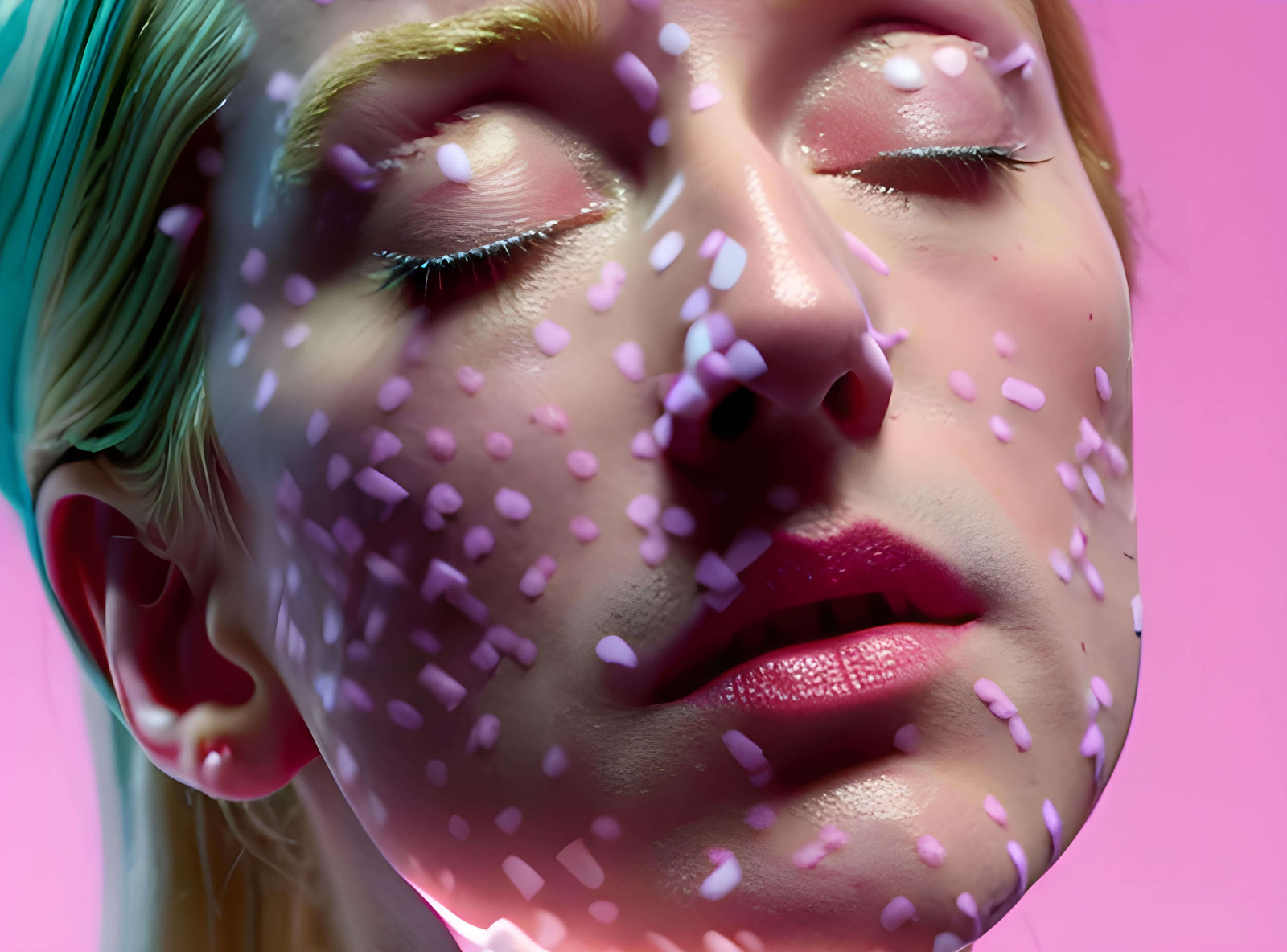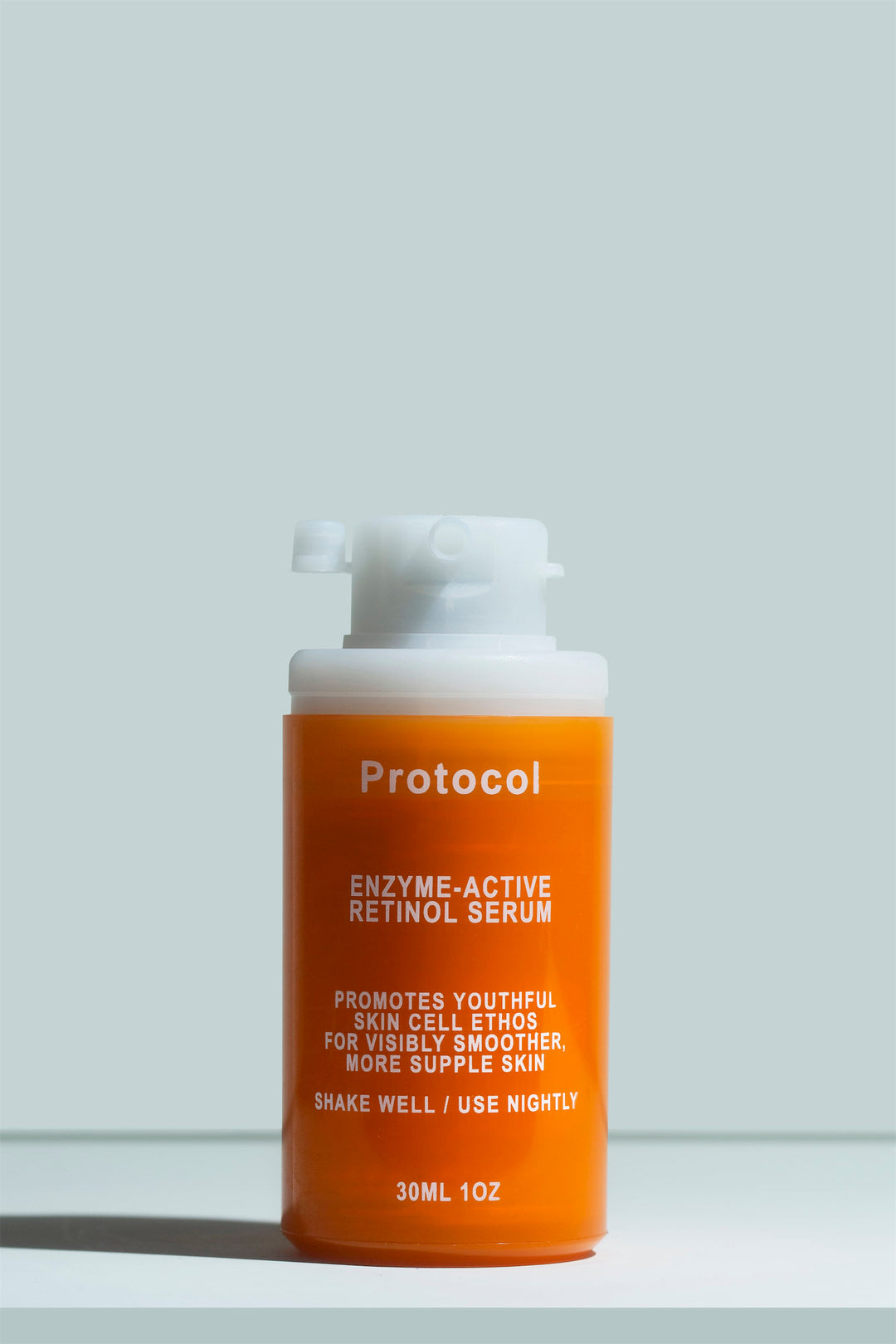Is Retinol an Exfoliant?

It makes perfect sense to wonder - is retinol an exfoliant? This powerful ingredient can cause peeling, makes the skin smoother, and unclogs the heck out of pores. How’s that so different from exfoliation?
As it turns out, the way retinol works to improve the look of the skin has little to do with exfoliation and a lot more with fundamental renewal. In this post, we’ll explain if retinol is an exfoliator, what makes it different from chemical exfoliants, and why it can have similar benefits.
Does retinol exfoliate?
No, retinol doesn’t exfoliate… Technically.
By definition, exfoliation is the process of removing dead skin cells from the surface of the skin, and that’s simply not how retinol works.
Exfoliation can be done physically, with rough cloth or scrubs (note that this method can be very irritating to the skin). It can also be done chemically with keratolytic agents like AHA that work on the surface of the skin to break down the adhesion of dead skin cells.
So how does retinol work?
When retinol hits the skin, it converts into retinaldehyde (i.e., retinal, the key ingredient in our Enzyme-Active Retinol Serum) and then into retinoic acid (RA). Once that happens, the retinol interacts with receptors in the skin, to trigger and regulate the way new skin cells form and differentiate. It speeds up your skin’s renewal process while ensuring it behaves in a healthier way in general.
One of the things the skin does naturally when it’s in good shape is “desquamate”, meaning that it sheds dead skin cells all by itself. In other words, healthy, youthful, and thriving skin can exfoliate itself just fine.
Retinol helps the skin reach its healthiest state, where desquamation happens regularly and evenly, which is why it’s able to help reduce blemishes and clarify the pores. In some cases, especially at the outset, it can also lead to some visible flakiness as the skin reaches a new equilibrium, but this will usually stop within a few weeks or months of usage.
So in that sense, retinol does help with exfoliation, despite not exfoliating the skin directly.
Do I still need to exfoliate if I use retinol?
It depends. In many cases, combining retinol and exfoliants can provide faster and better results, especially if you have very specific goals, like reducing breakouts faster or targeting discoloration. However, for simple skin maintenance and age prevention, using a retinoid alone can be more than enough.
You may also want to keep in mind your risk of irritation, especially if you’re trying to perfect a skincare routine for sensitive skin. For some folks, exfoliating and using retinoids at the same time might be the ticket for clear, smooth skin, while for others it could be a recipe for irritation.
The results and effects also depend on the type of retinoids you use and their strength level, the type of exfoliant you use, how the products are formulated, and your frequency of using either product.
Most of our clients find prescription-strength retinoids too irritating for their skin, even without exfoliation. On the other hand, combining our Enzyme-Active Retinol Serum with the wash-off Double AHA Cleanser allows them to calibrate the level of exfoliation to their skin’s unique needs at any given time.
To learn more about how to put these two ingredients together (whether with our products or otherwise) check out our glycolic acid and retinol guide. Once you’re ready to start with a routine that hits the perfect balance of deep renewal and surface-level clarity, explore our skin renewing line.




